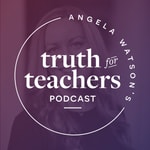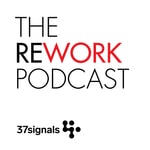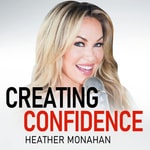Angela Watson's Truth for Teachers – Détails, épisodes et analyse
Détails du podcast
Informations techniques et générales issues du flux RSS du podcast.

Angela Watson's Truth for Teachers
Angela Watson
Fréquence : 1 épisode/11j. Total Éps: 351

Classements récents
Dernières positions dans les classements Apple Podcasts et Spotify.
Apple Podcasts
🇨🇦 Canada - courses
31/07/2025#12🇬🇧 Grande Bretagne - courses
31/07/2025#50🇺🇸 États-Unis - courses
31/07/2025#11🇨🇦 Canada - courses
30/07/2025#13🇬🇧 Grande Bretagne - courses
30/07/2025#31🇺🇸 États-Unis - courses
30/07/2025#13🇨🇦 Canada - courses
29/07/2025#12🇬🇧 Grande Bretagne - courses
29/07/2025#20🇺🇸 États-Unis - courses
29/07/2025#14🇨🇦 Canada - courses
28/07/2025#50
Spotify
Aucun classement récent disponible
Liens partagés entre épisodes et podcasts
Liens présents dans les descriptions d'épisodes et autres podcasts les utilisant également.
See all- https://gretchenrubin.com/
486 partages
- https://learn.modernclassrooms.org
166 partages
- https://organize365.com/
152 partages
Qualité et score du flux RSS
Évaluation technique de la qualité et de la structure du flux RSS.
See allScore global : 38%
Historique des publications
Répartition mensuelle des publications d'épisodes au fil des années.
EP308 How (and why) schools should support neurodivergent educators
dimanche 18 août 2024 • Durée 47:46
Yes, we’re talking about accommodations FOR TEACHERS…
I recently asked educators on social media if neurodivergent staff were being offered any support, and folks had a LOT to say! In this episode I’ll share:
- What we mean when we talk about neurodivergence
- Why neurodivergence isn’t a deficiency, just a difference
- What teachers say about accommodations that are (and aren’t) happening in their schools
- The legal rights that U.S. teachers have under the Americans with Disabilities Act
- The types of supports you can request and the logistics of making them happen
From there, I’ll share the commonalities and patterns in the response from educators about what’s been helpful and what’s needed.
I’ll talk about the 5 ways schools can offer support to neurodivergent educators and what these recommendations look like in practice:
#1: Allow for flexibility and autonomy, especially within breaks
#2) Designate quiet areas and mitigate the effects of overstimulating environments
#3) Communicate proactively about scheduling and changes
#4: Give clear directives, so the invisible expectations become visible
#5) Differentiate PD and offer topics related to executive function and organization
Additionally, I’ll make the case for universal design: that’s what good for neurodivergent educators also benefits neurotypical educators, and that these practices can (and should) be implemented school-wide.
EP307 Creating conditions for transformation (with Elena Aguilar)
dimanche 4 août 2024 • Durée 32:34
"Transformative change means feeling different, having different experiences every day, not just little changes that feel like a band-aid."
These are the words of today’s guest, Elena Aguilar, an instructional coach whose latest book is called Arise: The Art of Transformation Coaching. (https://amzn.to/3Srseot) Through her book and our conversation today, you’re invited to teach in a “human-centered, compassionate, wildly optimistic way.”
Listen in as we discuss:
- What “transformation” looks like and how it applies to the work of classroom teachers
- Why transformation results from addressing the Three Bs: beliefs, ways of being, and behavior…
- and why that order matters Which conditions allow for beliefs to change and how we can implement them in our classrooms
- How our “ways of being” as teachers tie to transformation
As we look toward the start of a new school year, I hope that Elena’s thoughts will help you reimagine what’s possible in your classroom, and create conditions for both student transformations and your own.
Get the shareable article/transcript for this episode here.
EP299 A spring cleaning classroom guide: what if you didn’t need all that STUFF to teach well?
dimanche 14 avril 2024 • Durée 17:16
Do you refuse to throw anything out because you MIGHT need it one day, or find yourself holding on to worthless stuff “just in case” you need it?
In this episode, I’ll share 10 things you can get rid of in your classroom this spring to make space for what you actually need and use.
And, I’ll help you establish a mindset of abundance rather than scarcity, so you can approach spring cleaning with a perspective that will help you feel good rather than apprehensive about getting rid of the things you worked so hard to accumulate:
- I like to streamline and simplify how my classroom runs.
- I don’t keep things I don’t really need.
- I could still teach well with a fraction of the materials I’ve accumulated.
- If there is something that I need later and don’t have, I trust that I will be able to find it again, or borrow it, or be able to do without it just fine.
- The foundation of my classroom is my energy, enthusiasm, and know-how, not my stuff.
- I feel good about clearing away the things that drain my energy and enthusiasm by creating a cluttered, disorganized work space.
- I can let go of things I don’t need in order to make space for things I do.
Click here to read the transcript and participate in the discussion.
EP221 Three ways to make social-emotional learning REAL for students (with Dr. Byron McClure)
dimanche 28 mars 2021 • Durée 45:19
How can we make SEL more than a buzzword? School psychologist Dr. Byron McClure is here to go beyond what’s trendy, and give an honest overview of the mental health and socio-emotional support students really need from us right now.
Byron shares 3 specific practices you can do with kids to address their social-emotional needs on a daily basis in your classroom. You’re probably familiar with restorative conversations, daily check-ins, and morning meetings ... but Byron frames them in a larger context that taps into the real power behind the practices.
Listen as Byron shares some of the history of SEL and what elements have been intentionally obscured and overlooked. We’ll examine how to keep SEL from being “touchy-feely fluff that doesn’t prepare kids for the real world.”
The key is to be action-oriented, and ground the work in culturally affirming practices, justice, and equity. We can help students understand ways that privilege is showing up, and ways they might be able to dismantle systems for themselves or others.
You’ll learn how to use a strength-based approach to building relationships within a sense of community. As Byron says, we can “shift from what's wrong to what's strong with students."
We’ll also talk at the end about how schools can address teachers’ socio-emotional needs, as well.
Byron’s energy is contagious, so if you’re ready to get fired up, listen in!
Click here to read the transcript and participate in the discussion or, join our podcast Facebook group here to connect with other teachers and discuss the Truth for Teachers' podcast episodes.
Power through with...rest
mercredi 24 mars 2021 • Durée 04:42
I know what many (most?) of you are being asked to do right now is NOT reasonable or sustainable.
And because you could never have enough time and energy to do everything that kids need right now, the solution could never be for you to just work harder.
We are still in a pandemic. This is not a “normal” school year. Regardless of how much districts want to pretend we can hold to the exact same expectations as last year, we cannot.
Of course you’re distracted and panicky and overwhelmed and unfocused at times. Of course your students are the same way.
We can’t be expected to accomplish what we normally accomplish because our world is not functioning as it normally does.
Rather than trying to keep our frantic pace and be productive like nothing has changed…
What if we allow ourselves space to explore different approaches, and give ourselves permission to have adjustment periods for continually changing routines?
What if we choose time for disconnecting from the outside world, and prioritize reconnecting with ourselves?
What if we stop pushing ourselves and our kids 24/7 to keep trying to accomplish more, and instead have some time to just be together for a while?
What if we stop worrying about getting ahead for a moment, and read and play games and cook and take naps and go for walks and have conversations and just … be?
We need physical rest. We need mental rest. We need emotional rest.
None of this is easy in a culture that determines our worth by how hard we work, how much we produce, and how much money we earn. We’ve been conditioned to feel guilty for taking a break or “doing nothing” or “wasting time.”
But that approach is part of the old paradigm which has to fall away and be replaced with a way of working, teaching, and learning that is humanized and centered on wellbeing rather than accomplishment.
Your worth is inherent to your being; it is not tied to how much you get done.
You have the right to simply exist and not perform, create, produce, or serve others every single moment in order to feel of value.
Pushing yourself to work more when your body's calling for rest will not help you get ahead.
So, resist the pressure to perform at optimal levels when we are not working in optimal conditions.
You deserve grace and compassion. Give those things to yourself when no one is giving it to you.
Remember that rest is necessary for your survival. It’s not something you “earn” after you’ve checked off everything on your (never ending) to-do list. You do not need to apologize for needing to rest.
Will you close the laptop after 7 pm every night?
Refuse to think or worry about school on Saturdays?
Schedule a block of time into your calendar this week in which you do something that is rejuvenating and reenergizing?
Don’t overthink it: just pick an approach that sounds easy and manageable right now, and DO IT. Any time for rest is better than none.
A huge block of free time is not going to magically appear, and the weight of unfinished work is not going to lift on it’s own. No one is going to create boundaries for you.
So, don’t wait for someone else to offer you the opportunity to take a break.
Claim your right to rest.
Sign up for the Power Through series emails on this page here.
EP220 How to use podcasts in the classroom (with Listenwise)
dimanche 21 mars 2021 • Durée 39:35
“Better listeners are better learners,” says my guest Monica Brady-Myerov. She’s the Founder and CEO of Listenwise, an award-winning listening skills platform and the sponsor for this episode. Monica explains that audio is a powerful tool for equity and differentiation, because most kids have a much higher listening comprehension level than reading comprehension.
You can bring authentic stories and primary sources to your students via audio, helping to build empathy and personalize information that might be difficult to connect with through just words on a page.
Not only are podcasts a great way to build students’ content-area knowledge, but audio instruction also helps strengthen their listening comprehension skills.
Monica shares examples of how teachers are incorporating podcasts into their instruction. She also explains the features of Listenwise which make it faster and easier for teachers to find high-quality audio content to use with students. There’s a free version of Listenwise available, and you can sign up for a free 30 day trial of the premium version here.
We also delve a bit into some of the brain research that tells us how we process audio information and the benefits of it. By the end of the convo, my mind was racing with possibilities and ideas of how the things Monica taught me could be used with students, and I hope you’ll feel the same. If you love podcasts yourself and are curious about how to use them more with students, you’ll find some great practical strategies and tools here!
Click here to read the transcript and participate in the discussion or, join our podcast Facebook group here to connect with other teachers and discuss the Truth for Teachers' podcast episodes.
Power Through: A special 6 week Wednesday series on Truth for Teachers
mercredi 17 mars 2021 • Durée 05:15
Need something to look forward to in the final weeks of school? This new Wednesday morning podcast series will provide 5 minutes of audio encouragement and sound therapy instruments. It's designed for you to listen mid-week to get re-energized. If you'd also like a written version/transcript, sign up for the 6-week email series of free bonus teaching support + encouragement here.
In my experience as a teacher, this time of the school year always felt uniquely challenging. It’s like the finish line is in sight, but not close enough to feel motivating yet. Student engagement drops off drastically, and it’s right at the point where you’re panicking that there’s still a ton of content you didn’t teach yet and you need your students to ramp UP, not DOWN.
I can only imagine how that feeling is magnified for this past school year.
My intuition is telling me that for educators, the next few weeks are going to be about powering through and making the very best of a difficult situation until the school year is complete.
And to do that, I thought it might help to have a realistic + regular pep talk from someone who’s rooting for you.
That’s where this series comes into play.
For each of the next 6 Wednesday mornings, I'm going to release a mini episode of encouragement to help you power through the end of the school year. They’re going to be super short: around 5 minutes each, and will be perfect to listen to just before class starts for a bit of encouragement and practical mindset shifts.
I’ll also be incorporating some sound therapy instruments periodically in the episodes: you’ll hear short segments of the words accompanied by me playing the koshi chimes, a few different kalimbas, and a hang drum.
As I started producing this series, I realized that each week’s focus was centering on a word that starts with “r”, so I decided to go with that: Rest. Reconnecting in relationships. Resilience. Reframing. Reflecting. Release of regrets.
I’m calling this series “Power Through”, because I think that’s probably the most realistic approach for most folks. Powering through means “to continue in a strong and determined way until the end of something, even when it’s difficult.”
That’s the task ahead of us in the next few weeks, and I hope this mid-week encouragement will give you a boost of energy and help equip you for whatever challenges come your way.
Now I know that your time alone for listening to podcasts can be limited right now, and I know you probably have teacher friends who would benefit from this, but they’re just not into podcasts, or maybe they are hearing impaired.
I’m also offering this Power Through series in written form, and it can show in your inbox each Wednesday morning if you’d like. Just click the link in the show notes to enter your email address, and you’ll automatically receive a message of support each Wednesday morning for the next 6 weeks.
Your first “Power Through” message will come right to your inbox immediately so you’ll know you’re signed up and can get some helpful advice and resources right away. That email includes links to ways you can cultivate engagement in remote/hybrid learning, reduce grading and simplify assessment for digital assignments, teach students time management skills for online learning, and more.
Sometimes just a small shift in the way you approach your workload can help you feel less stressed and overwhelmed. See if you can choose just one idea to try out — whatever seems easiest at the moment.
And of course, you can unsubscribe from anything, anytime, using the link provided at the bottom of every email.
So that’s what you get if you also sign up for the email version of the Power Through series. But know that the weekly 5 minute audio encouragement is not about giving you more things to do or learn. I’m just offering a few short, kind words each week to help clear away overwhelm and shift your perspective so you feel more energized.
This series will carry you through the spring here in the northern hemisphere, ending at the beginning of May. At that point, you can work back through the series a second time if you’d like, or revisit messages that particularly spoke to you that can help with the final weeks of school. I just didn’t want to wait to release these messages too close to the end of the year, when I know folks need them now.
So, the first Power Through episode will release next Wednesday--click the link in the show notes to get it + the bonus tips/resources sent to you via email.
I hope these resources help you feel like we can continue together in a strong and determined way until the end. Remember that everything happening right now is temporary. Teaching will not be exactly like this forever. And, you’re not alone … we’re going to power through this together.
Sign up for the 6-week email series of free bonus teaching support + encouragement here
EP219 Processing pandemic teaching: An honest, healing conversation (with Pernille Ripp)
dimanche 14 mars 2021 • Durée 44:39
“I've never worked so hard in my life to try to reach students, and yet never felt like such a big failure. That carries a lot of emotional weight. But when we are dismissed to ‘just figure it out’, we're not actually given credit for all of the incredible work that has happened.”
Those are the words of my guest Pernille Ripp, a 7th grade ELA teacher, author, blogger, keynote speaker, and passionate advocate for education.
We are here to hold space for you to process the heaviness of the past year. Pernille illuminates some of the common emotions that come from teaching in a pandemic under the weight of so many expectations, and talks about the impact on her own mental health.
We’re offering this conversation to you not as advice and how-to tips, but as a release valve for the pressure that so many educators are feeling. We’re dismantling the narrative that kids have “lost a year of schooling” and are “falling behind,” and examining how teachers have been the easy scapegoats for the systemic problems COVID has exacerbated.
Pernille talks about the challenges of teaching while also supporting her own 4 children in their learning. And, she shares how she creates moments of joy and things to look forward to for herself, her family, and her students.
“I don't know what the future is going to hold, so I'm not going to prepare for it,” Pernille says. “But I'm going to focus on the things that will continue to sustain me as an educator and as a human being. I'm going to try to be in the best mental state that I can to welcome all of the kids in and to say, ‘Whatever happens, we're going to meet it together, and I'm going to be by your side, no matter what that looks like’.”
Click here to read the transcript and participate in the discussion or, join our podcast Facebook group here to connect with other teachers and discuss the Truth for Teachers' podcast episodes.
EP218 Ten tips for teaching critical thinking + information literacy (w/ LaGarde & Hudgins)
dimanche 7 mars 2021 • Durée 41:22
Want to develop your students into digital detectives? Join me as I talk with Jennifer LaGarde and Darren Hudgins, who are co-authors of the book Fact vs. Fiction: Teaching Critical Thinking In the Age of Fake News, and also a new book coming out in July 2021 called Developing Digital Detectives.
This is the second episode in our 2 part series about media literacy. Episode 216 with Peter Adams of the News Literacy Project shares how educators can be informed media consumers and advocates for truth. This is an important first step, because we can’t teach skills to students if we don’t have those skills ourselves.
In this episode, we’re doing a deeper exploration into how to support students in information literacy. Jennifer, Darren, and I will talk a bit about big picture issues, like making time for instruction on digital literacy, and how to teach kids to think critically about conspiracy theories when those conspiracy theories are widely believed among the community you teach in.
But we’ll spend the vast majority of our time talking about specific, practical things you can do with your students right now to help them be smart media consumers:
- Teach thematically and help kids make connections between topics/subjects
- Use mobile devices — not just computers — when having kids analyze information
- Create learning environments that value questioning, not just finding the right answer
- Guide students to understand their brains and examine bias/assumptions
- Move from a checklist approach to an investigative approach for fact-checking
- Teach kids to be specific about the falsehood rather than claiming "fake news"
- Illuminate the people behind the information that's shared
- Help kids analyze information not only in long-form articles, but also in the mediums they frequently consume, such as video, memes, and social media images
- Teach kids HOW to think, not WHAT to think
- Remember that information literacy is a human problem, and even small steps to tackle it are worthwhile
Click here to read the transcript and participate in the discussion or, join our podcast Facebook group here to connect with other teachers and discuss the Truth for Teachers' podcast episodes.
EP217 Good things ARE happening: How to find thoughts that feel better
dimanche 28 février 2021 • Durée 20:28
In a time where there’s so much to be sad or upset about, we have the power to choose thoughts that feel better.
And, we can actively look for evidence that those thoughts are true and that good things are happening.
In this article and podcast episode of Truth for Teachers, I'll share a couple of examples of how this has worked in my own life and work, and how it might be useful for you, too.
I’ll also outline 4 specific steps you can take to choose a better-feeling thought about something that’s bothering you right now, whether it’s personally or professionally.
Click here to read the transcript and participate in the discussion or, join our podcast Facebook group here to connect with other teachers and discuss the Truth for Teachers' podcast episodes.









